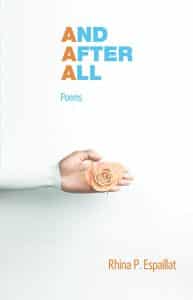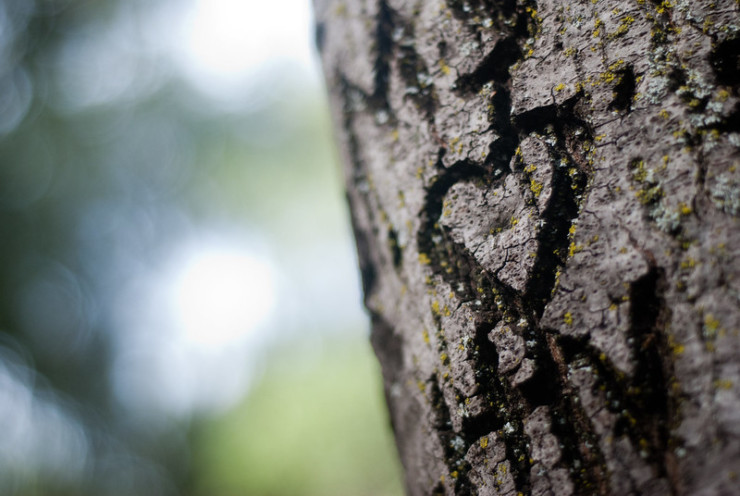Rafael Trujillo is a name long forgotten today, but he ruled the Dominican Republic as dictator for more than three decades, from 1930 to 1961. His was a bloody, vicious regime, and he exported violence to Haiti, Venezuela, Mexico, and even the United States via assassinations of his political enemies. In 1932, two years into his rule, Rhina Espaillat was born. A few short years later, her great-uncle opposed the regime, and the entire family was exiled. They settled in New York City.
Espaillat began writing poetry as a young girl, in both Spanish and English. She’s still writing today poetry today; her most recent collection is And After All: Poems. Nothing in the work indicates a connection to Trujillo, but one can’t help but think that the experiences of life under a dictator followed by exile can’t help but affect what a poet writes, including a focus on what’s inside as opposed to what’s visible for all to see.
And After All is a collection about interiors—the interiors of families, the interiors of relationships. She writes about fathers and mothers, siblings and sons, extended family members, friends, and acquaintances, even people she meets briefly on a train. One is even a farewell to a gall bladder, which is about as physically interior as one can get. None of these interiors is visible to the naked eye, but that doesn’t lessen their importance and their impact.
She even writes about the interior of a house, and something that’s making a noise inside a wall.
Archaeology

a steady, high-pitched call,
but then slowing, and weaker.
Then, scattered loud dissent,
as if some tired speaker,
sick of an argument,
had nothing more to say
but said it anyway.
Silence the second day.
We called a man to check
the gutters and the flue,
the laths around the deck
(skunks have been known to dig
under and squirm through),
but no, this time, no sign
of anything so big.
Something looking to hide,
finding a hole so small
or can’t be seen at all,
probably got inside
the attic, then went on
between the beams, to where
the studs descend, and there
contrived a nest, and died.
Past cure, they say, past care.
One day, when we’re long gone,
if those who own the house
tear down our family room,
they may well find the mouse—
or bird, or other thing—
that found itself a tomb
house-hunting in the spring.
Like this poem, most of the poems in the collection fall into the “New Formalism” mode, rhyming poetry that grew popular in the 1960s and became firmly established in the 1990s. Dana Gioia is a leading proponent; prominent practitioners include Mark Jarman, Clive James, and, more recently, James Matthew Wilson. I found myself reading Espaillat’s poems aloud; rhyming poems lend themselves to oral communication and memorization.

Rhina Espaillat
Espaillat is the author of 11 books of poetry, short stories, and essays, and three poetry chapbooks. She’s received numerous awards for her poetry and translations, including the T.S. Eliot Prize, the Richard Wilbur Award, the Howard Nemerov Prize, the May Sarton Award, the Robert Frost Award, and others. Her poetry translations have included works by Richard Wilbur and Robert Frost, translated into Spanish. She is also active with the Powow River Poets, a literary group she founded in 1992.
And After All leads you to take pause and consider the interiors of your own life. It’s a collection about all of our relationships, all of our interiors, the things that make our lives meaningful and important.
Photo by Zaheer Mohiuddin, Creative Commons, via Flickr. Post by Glynn Young.
__________________________

“I require all our incoming poetry students—in the MFA I direct—to buy and read this book.”
—Jeanetta Calhoun Mish
- Longfellow’s “Paul Revere’s Ride”: Creating a National Legend - April 17, 2025
- Poets and Poems: Katie Kalisz and “Flu Season” - April 15, 2025
- Poets and Poems: Michelle Ortega and “When You Ask Me, Why Paris?” - April 10, 2025

Leave a Reply